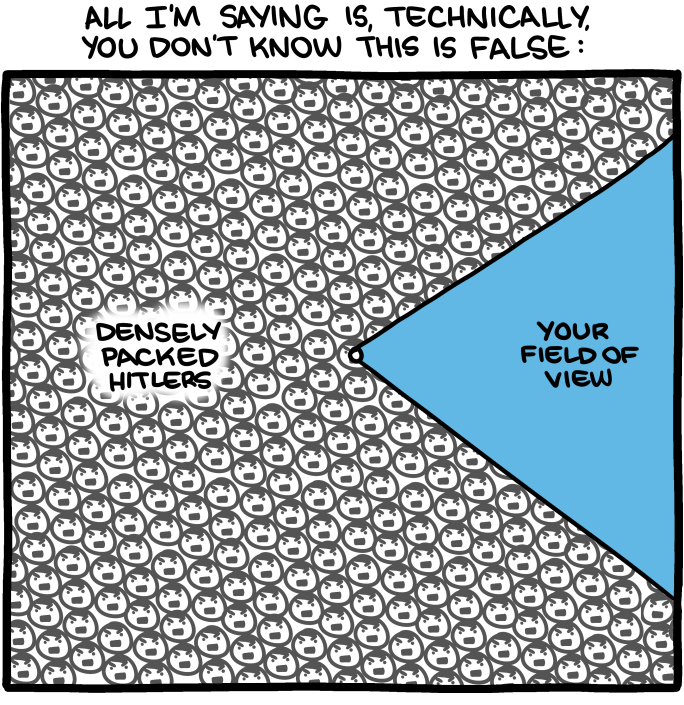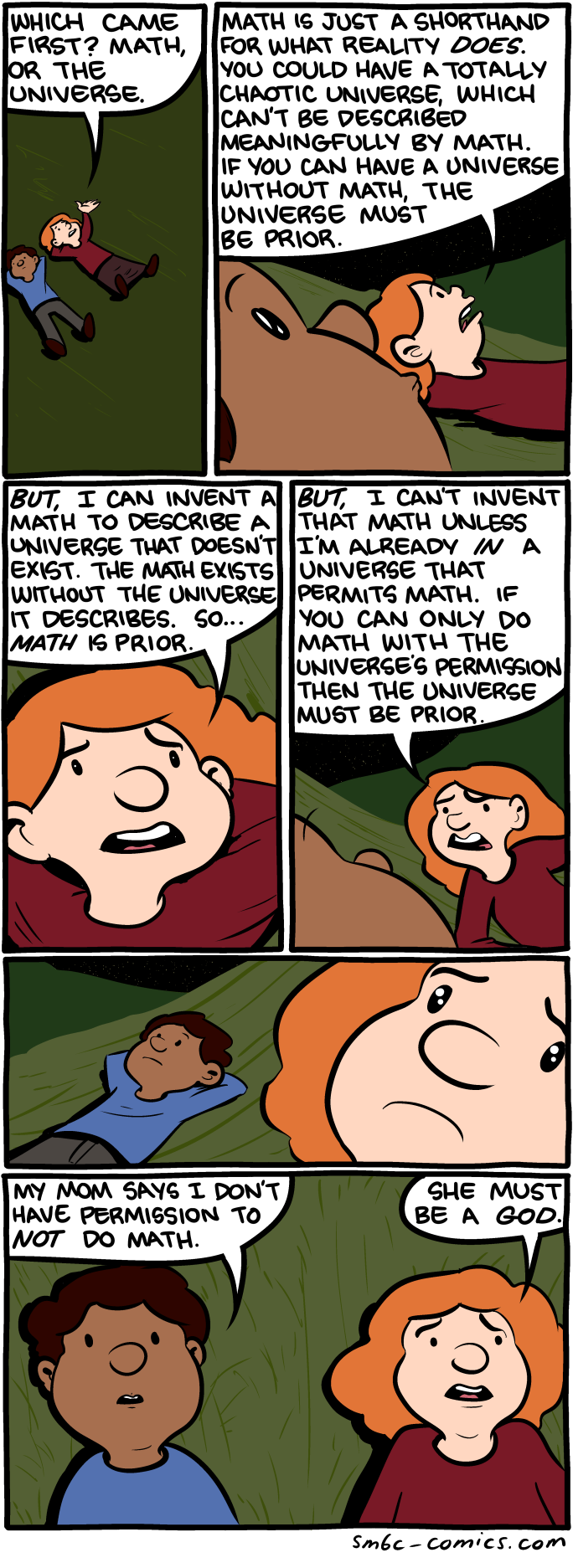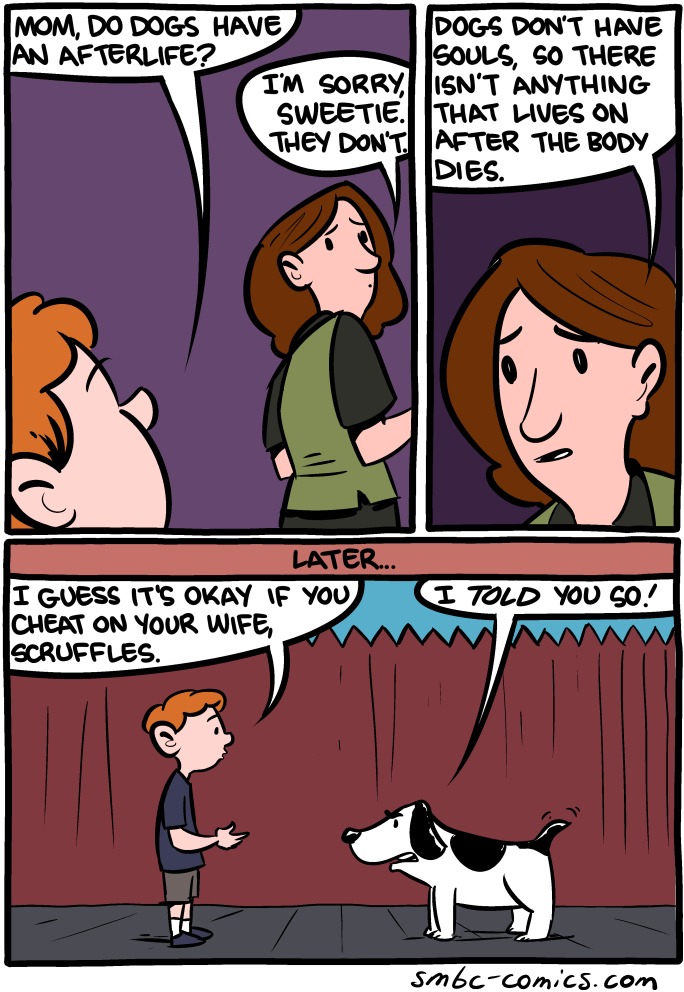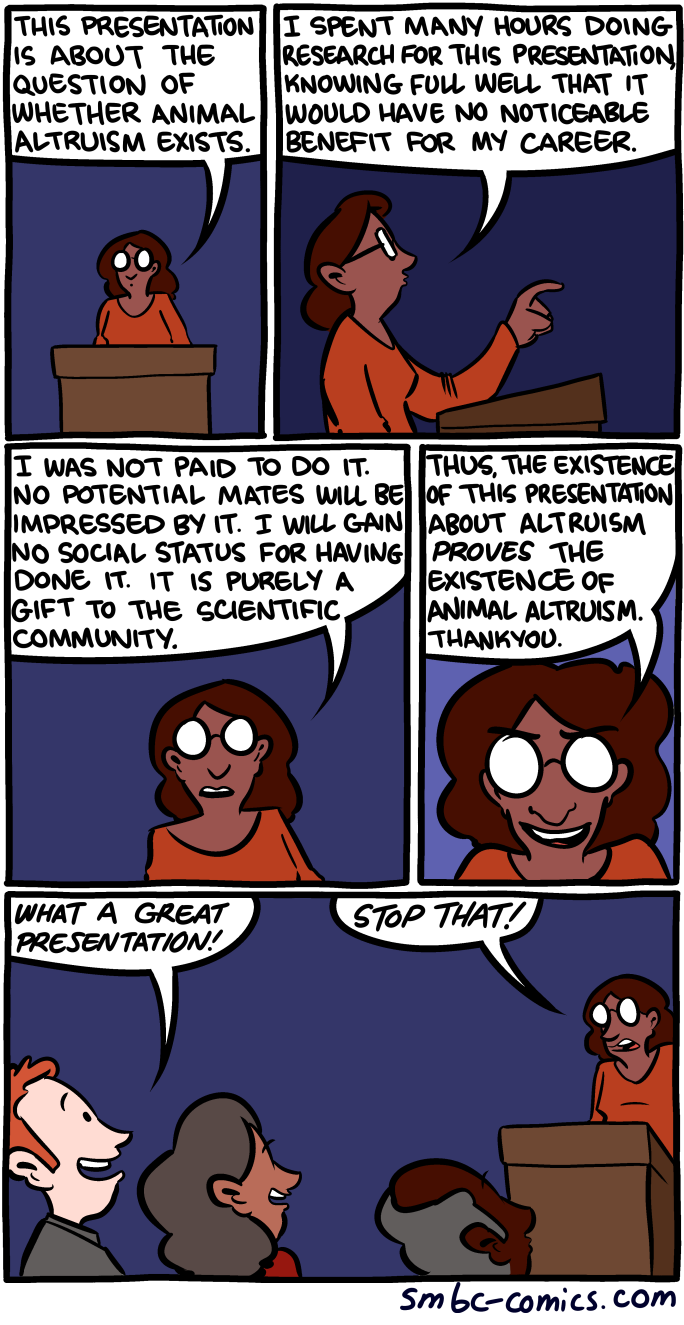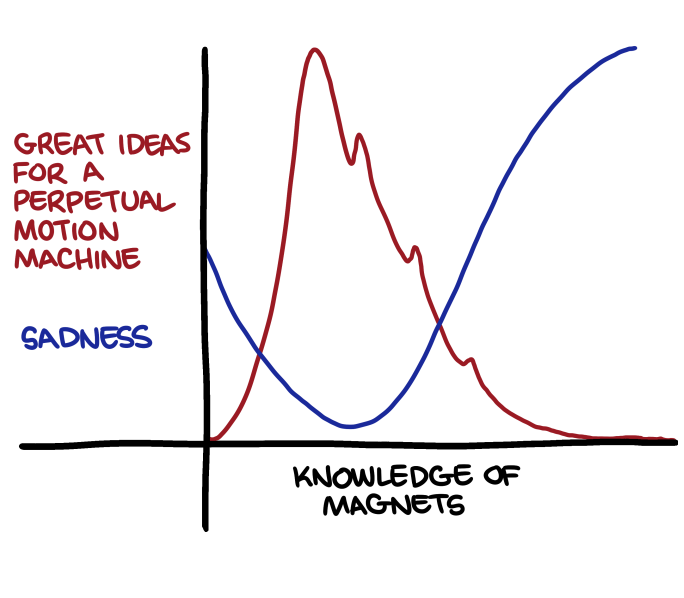Click through for full sized version.
![]()
via Saturday Morning Breakfast Cereal.
This strip reminds me of something I heard someone say in a presentation on communication strategies several years ago. It was a concept the speaker referred to as “the curse of knowledge”. The curse of knowledge is the idea that when you know something, it is often very difficult to see things from the perspective of people who don’t know that thing, particularly if it’s something you’ve known for a long time.
For example, once you understand the vast array of cultural norms and practices that exist across humanity, many of our cultural taboos become obviously arbitrary, such as the one against homosexuality. When interacting with someone who does not understand that, it can be very difficult to put yourself in their shoes and understand where they’re coming from. It can also be very easy to demonize them, when often their main failing is a simple lack of knowledge.
I often find this to be an important thing to remember when dealing with younger people, which as a manager at a university, I have lots of opportunity to do. I regularly have to remind myself of how limited my own understanding of many things were when I was 20 years old, particularly my understanding of human relations. When I do succeed in that reminder, I’m often struck by how much more intelligent and knowledgeable today’s young people are than my generation was at that age. (We had TV to teach us, but not the internet.)
The curse of knowledge is important to keep in mind when you’re trying to convince someone of anything. Often their resistance is rooted in things they don’t know, things we may have come to see as obvious. Success in convincing them may hinge on figuring out where that lack of knowledge exists, and finding a respectful and effective way to bring them up to speed. (Of course, as the strip suggests, it’s always possible that their resistance is rooted in something we don’t know; a possibility we always have to be open to.)
Tagged:
communication strategies,
Culture,
Knowledge,
Politics,
Saturday Morning Breakfast Cereal,
Society,
the curse of knowledge ![]()
![]()










